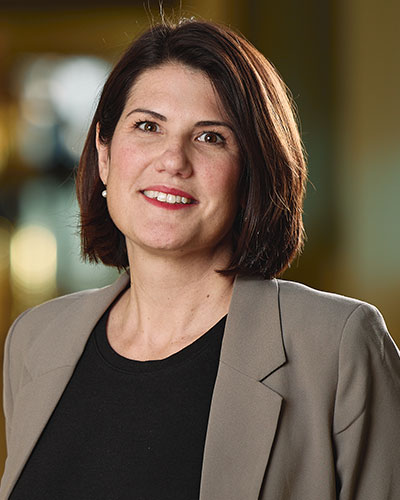
As regulated members, pharmacists and pharmacy technicians are responsible for maintaining a high standard of professional competence, including continuously improving their level of professional knowledge and skill. ACP’s Continuing Competence Program (CCP) supports regulated members to meet these responsibilities, helping to continually build competence and confidence.
This team supports pharmacy professionals in the completion of their annual CCP requirements, including development and facilitation of the annual prescribed learning activity. The competence team also manages the application and approval processes for additional prescribing authorization and authorization to administer drugs by injection, as well as providing individualized support to those working to improve their professional practice in the Practice Improvement Program.
The requirement for ACP to have the CCP comes from the Health Professions Act, which obligates all health professionals to maintain their competence and apply advances in their profession as a lifelong process.
Where does direction for the CCP come from?
The CCP is overseen by ACP’s Competence Committee, comprised of three pharmacy technicians and five pharmacists appointed by Council. The committee fulfills their responsibilities as provided in the Health Professions Act—advising the college’s competence director about matters of development, implementation, and maintenance of the CCP.
Former committee members reflected on their experience with the committee, discussing what brought them to the committee, what they gained from the experience, and what regulated members should know about the CCP. Interviewees included
- Cheryl Harten, Pharmacist;
- Loren Voice, Pharmacy Technician; and
- Mike Wolowyk, Pharmacist.



Describe your professional background.
Loren
“I’ve been in the pharmacy industry for 30 years. I started in a community pharmacy when I was 17 as a pharmacy assistant, and then it just started from there. I found that I really loved helping people and working in the pharmacy, so I became a pharmacy technician. In 2016, I went back to school and got a Master of Public Health degree.
I’ve always been passionate about training people and seeing our profession grow and move and evolve, so I find my role as a clinical instructor in the Pharmacy Technician Diploma Program at Bow Valley College so rewarding.”
Cheryl
“I graduated from university and then right afterwards I did a hospital pharmacy residency and I have been in institutional practice since then.
In 2016, I went back to school to get a Master of Public Administration degree. That decision was actually motivated by my experience on the Competence Committee. The committee members I was working with were so insightful and the work that was happening was great and that experience helped me realize that I wanted more formal education in leadership and program development and strategic planning. So it’s really thanks to my time on the committee that I pursued my master’s degree.
More recently, I’ve just transitioned to a clinical practice leader role.”
Mike
“I have been practising as a pharmacist since I graduated from the University of Alberta in 1990. I have always practised in independent community pharmacy and, in 1999, I opened my own pharmacy, Crestwood Apothecary, in Edmonton. I have always had an interest in compounding and we now operate a compounding and repackaging pharmacy as well as a community pharmacy in the same location in Edmonton.”
How would you describe the role of the Competence Committee?
Cheryl
“The committee uses a quality assurance and quality improvement lens. The goal is to engage pharmacy professionals in a process of continued professional growth and ongoing practice improvement. This helps pharmacy technicians and pharmacists identify opportunities to provide better person-centred care.”
Mike
“The committee’s role is to maintain the competency program and help to make sure it is working for all registrants. When I was on the committee, the Continuing Competence Program was being expanded and redone and this occupied a lot of the group’s time and work. On a day-to-day basis, a lot of our time as committee members goes towards reviewing registrant cases that are referred to the committee for possible practice improvement.”
Loren
“I feel that the main role of the committee is guidance. It’s about guiding our practice and helping us, as regulated members, make sure that we’re meeting the needs of patients and practising to the best of our abilities. It all comes back to supporting the health of Albertans.”
What is the biggest takeaway you had from your time on the Competence Committee?
Loren
“The network of people who I had the opportunity to work with through this experience was a huge takeaway for me. There was so much mutual respect from everyone involved. We all approached our roles on the committee with the same goal of making sure pharmacy professionals are practising to the best of their abilities. Those connections that I made were the best part of the experience.
I also had the opportunity to serve as the chair of the committee and for me, taking on this role helped me appreciate that I really can do anything I set my mind to. In this type of role, there are a lot of things to think about because there are a lot of people who were depending on us as a committee. At first, I wasn’t sure that I had what it takes to help lead, but this was an opportunity to show that you can do what you put your mind to.”
Cheryl
“I had the chance to work with a lot of smart people on the committee but one of my biggest takeaways was the understanding that we all share a common goal. As pharmacy professionals, we all just want to support our patients. We may differ in our approaches, but fundamentally, we’re all working towards that shared goal.
I really came to appreciate what can be achieved when you have positive mentorship and meaningful connections. When you feel supported in your practice, people can achieve things that maybe they didn’t think possible.”
Mike
“For me, it was working with the amazing people that give their time on the committee—my fellow committee members, the competence director, and the Competence team. There are a lot of good people putting in a lot of effort to help any registrant that needs or wants to grow and improve in their practice.”
Why is it important for regulated members to maintain their competence?
Mike
“Pharmacy teams continue to play an essential role as healthcare providers as we deal with shortages of physicians and other limits on our healthcare system. Pharmacy is one of the most accessible health professions, and as our role as trusted healthcare advisors continues to expand, we must provide competent advice and care to all who seek it, so it is essential to maintain competence.”
Loren
“When it comes time to renew practice permits, I have heard feedback from my peers in pharmacy about how much work it is to meet annual competence requirements. I always respond and remind them that, as professionals, we need to meet the standards and adhere to our Code of Ethics. If you’re not meeting those expectations, there is a problem. As healthcare providers, pharmacy professionals need to be up to date on their expertise and continually learning to ensure patients are receiving the best possible care.”
Cheryl
“The reality is, we’re obligated as professionals to maintain our competence. We’re responsible to stay current, grow our skill sets, and consistently provide high quality care to patients—our patients deserve nothing less. The people we serve deserve us at our best.
It is our moral obligation to be committed to continued growth, self reflection, and lifelong learning. Ultimately, the underpinning of why we need to maintain our competence comes back to our ability to deliver person-centred, safe, effective care for every patient.”
What would you like regulated members to know about ACP’s Continuing Competence Program and the work of the committee?
Cheryl
“One thing that I think is important for regulated members to know is that, as a committee, we’re also continually evolving. The committee continually refines and improves programs and welcomes feedback. The committee is always assessing how their work can best meet the needs of the contemporary pharmacy professional.
The committee wants to foster success in pharmacy. It’s not intended to be punitive—everyone involved is so invested in helping pharmacy professionals achieve success. As pharmacy professionals, we all need to support each other, and that is what the committee is doing—supporting us to do better for Albertans.”
Mike
“There are a lot of great practitioners involved in the committee who have good insight for pharmacy practice. I was always impressed by the quality of the people on the committee. Everyone involved wants the best for patients and for registrants to be able to practise at a high competence level.”
Loren
“The committee is made up of pharmacy technicians and pharmacists from all over Alberta who collectively put a lot of work and effort into the program. The Competence Committee is not there to punish you! It’s there to help us, as professionals, rise to where we need to be. The Continuing Competence Program is there to make sure we’re the best that we can be so that we can provide the best possible care for Albertans.”




